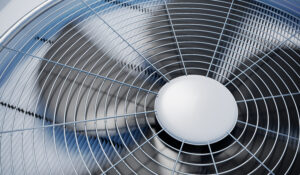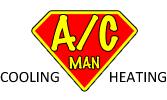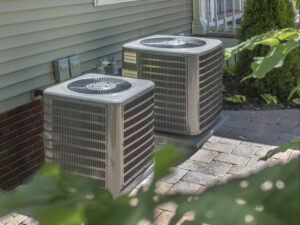Reasons Why You Should Switch To Green HVAC Technology
Custom Cooling And Heating In Multiple Zones
If you are looking for the ultimate in cooling and heating zones, you should look at a Variable Refrigerant Flow system. This is a green HVAC technology that uses small air handlers that are individually controlled but make up a full system. The VRF of the main system will detect the requirements for each zone and will control the amount of refrigerant that flows to each of the air handlers.
 This type of system will be able to deliver green cooling and heating. In fact, this system could do both at the same time. Unlike other traditional systems, the compressor of these units will provide the right amount of cooling required for the conditions of smaller zones. This means that the system runs less frequently and at a lower capacity which is what makes it energy efficient.
This type of system will be able to deliver green cooling and heating. In fact, this system could do both at the same time. Unlike other traditional systems, the compressor of these units will provide the right amount of cooling required for the conditions of smaller zones. This means that the system runs less frequently and at a lower capacity which is what makes it energy efficient.
The green HVAC technology which is used will also capture heat from the cooling process and redirect this to the areas in the property that require heat. The small indoor air handlers are also quieter than a traditional split system.
Readily Available Solar Power
Solar energy is probably the most well known green technology with rooftop-mounted systems and solar farms being prominent. Solar panels will contain photovoltaic materials that cover sunlight into electricity. This electricity can be used for lighting, heating, and cooling.
The installation of a solar energy system can be expensive, but there are tax rebates as well as other incentives which can be used to reduce the initial costs. There are also some less expensive systems which make use of liquid and air to absorb the energy of the sun and transfer it to the heating of a building.
Geothermal Is Not Just For Icelanders
Iceland is the pioneer of geothermal energy and this is no surprise when you consider their volcanoes and geysers. The country uses this type of energy in around 87% of buildings to ensure that they are heated. However, this is an energy source that is not only available for Icelanders and it is a viable option for people in the US as well.
Geothermal systems will take advantage of the constant temperature found a few feet below the surface of the Earth to provide heating and cooling. The system requires a geothermal heat pump and looping piping which is underground and contains either a refrigerant or water. In the cold months, the fluid in the pipes will get heat from the ground and transfer this into the air of the building. In the summer, the process will be reversed with the heat traveling out of the house and into the ground.
There is an added bonus to this system and that is the creation of hot water. It is important to note that these systems will use electricity, but they are still more energy efficient than other types of technology.
AC On Ice
A new green HVAC technology that you should know about is an ice-powered air conditioner. This will not only cool the air, it will also reduce the amount of energy you use.
The AC unit will freeze large amounts of water during the night. During the hottest [art of the next day, the ice will be used by the unit instead of a compressor to cool the refrigerant. This will reduce the electricity that is used by the cooling system. As the ice melts, the normal AC system will start to kick in while the water to reused and frozen overnight.
It is important to note that this AC unit will use electricity. However, the combination of the cooling and the cost saving is likely to make this green HVAC technology popular as it starts to become available to the general public.
Bringing Your Radiator Into The 21st Century
Heating systems which use hot water flowing through the pipes and providing heat are nothing new. However, a much better green technology will be the hydronic heating system.
This modern system will use a liquid, which could be antifreeze, water or another liquid, to run through plastic tubing. The tubing can run under the floors, through baseboards, radiators or another heating exchange. The heat will then be transferred via radiation, convection or conduction depending on the system design. The boiler used to heat the liquid can run on geothermal power or solar power instead of fossil fuels to make it greener.
AC Man is a professional HVAC repair company in Houston, TX. We offer both commercial and residential HVAC services. Give us a call today to speak with a professional HVAC repair technician, or check our services. Click here to proceed to the first issue of this article.

 The majority of homes require additional humidification, particularly during the winter months, to help keep a balanced humidity level in the air and avoid any dry air problems. One of the best methods of dealing with humidity issues is by using humidifiers; however, it may not be possible to install a whole-house humidifier. In these cases, a portable humidifier is the next best option as this unit adds moisture directly to the area where you need it most!
The majority of homes require additional humidification, particularly during the winter months, to help keep a balanced humidity level in the air and avoid any dry air problems. One of the best methods of dealing with humidity issues is by using humidifiers; however, it may not be possible to install a whole-house humidifier. In these cases, a portable humidifier is the next best option as this unit adds moisture directly to the area where you need it most!